The horror, the horror
Jason. Freddy. Chucky. Every year, they come back to life (and sometimes, many times—how many Friday the 13ths have there been, again?). And, apparently, we love it: The recent popularity surge has led everyone from the Daily Iowan to Variety to Fast Company speculating on what’s fueling this the old-but-new trend.
Turns out, there’s scientific reasoning behind why we love scary movies so much. Whether you’re front and center during the action or need to peek behind your fingers, they can actually serve some physiological and emotional purposes.
We tracked down our favorite scary-movie experts and discovered how turning the spook factor up to 11 can affect your body, your brain—and even your hormones.
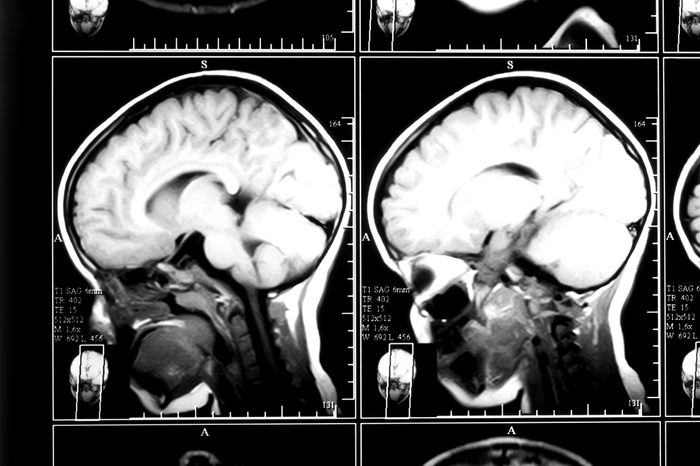
Your two parts of the brain talk together
“There are two parts of the brain that are involved in our reaction to things like fear,” explains Matthew Price, research engineer at the Department of Psychiatry and Behavioral Sciences in the UT Health McGovern Medical School in Houston, which measures human physiological responses to fear-inducing stimuli. “The prefrontal cortex, which is responsible for high-order cognitive functions, and the limbic system, where is where you have the amygdala, the part that lights up in an MRI where you encounter something fearful. These two systems talk to each other to indicate how scared you really should be, and helps you differentiate between mortal and perceived fear.” Check out some reasons why getting scared can be good for your health.
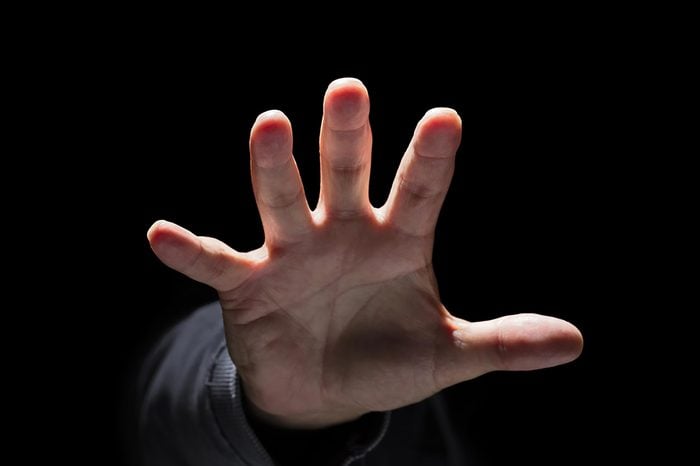
You get a mild fight-or-flight response
Also known as the classic “grasp the seat” startle response, whether it’s airplane turbulence or Jason suddenly coming back from the dead (because let’s face it, odds are he’s going to). “If it’s a mortal response, your hypothalamus will get involved, which is responsible for body temperature and heart rate. You’ll start to have a shallow breath. These are all sudden responses that even if you aren’t in mortal danger you’ll have mild responses in a scary film too,” says Price.
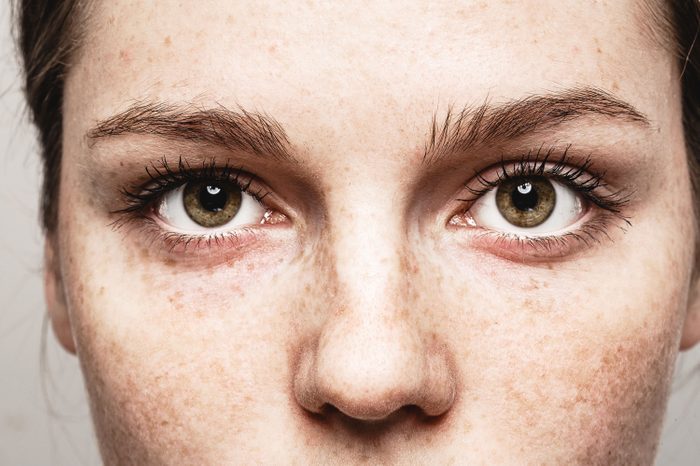
Your mind goes blank
When you think of meditative exercises, watching The Shining probably isn’t the first thing that comes to mind. However, watching scary movies can actually be calming for your mind both during and after, reports Greg J. Siegle, PhD, associate professor of psychiatry at the University of Pittsburgh Medical School, who tracked physiological responses to a haunted house during a recent study. “Our haunted-house research shows that people were able to shut down a lot of their thinking brain and were able to exist in a very present but not highly analytical state both during and an hour afterward, and scary movies have the same effect. They get us out of our own head, where you’re completely present and engaged, not worrying about the cares of your day. In many ways, it’s not so dissimilar to some meditative states we’ve studied.” If you find that surprising, you can learn about other “meditation myths” here.
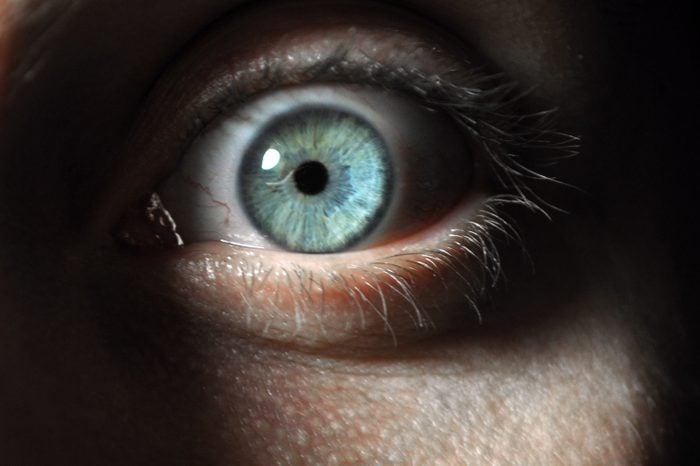
You get a cortisol rush
And that’s not necessarily a bad thing, says Dr. Siegle. “Chronic stress, where you’re releasing cortisol all day, no, that’s not good for you,” he says. But in small doses, being scared and in a state of general arousal allows you to access a lot of your brain’s emotional processing that you otherwise wouldn’t, and maybe give you a rush of adrenaline, he says. “There’s a reason people take their dates on a scary movie,” he laughs. Check out some more differences between good and bad stress.
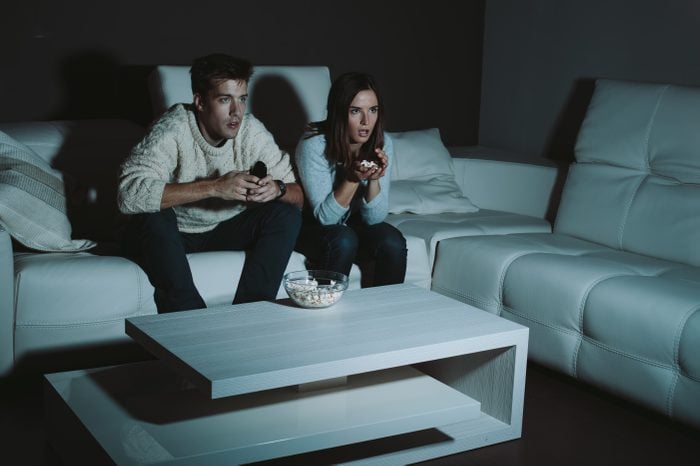
You access typically “forbidden” emotions
“Aristotle was the first to describe catharsis in Greek tragedy, where the idea is that fear and pity are highly regulated emotions in society, and we’re not allowed to express them in very many ways,” says Price. “And I do think that watching scary movies allows us to express those emotions, have acceptance of them, and transform them, but there has to be a constructive way to do that. Now I’m not endorsing scary movies as any sort of therapy per se, of course, I’m just saying look at Shakespeare, most of his storylines involved a terrifying series of events and that goes back thousands of years. That storyline isn’t new, and I don’t think they cause psychological harm.” he says.
According to Dr. Siegle: “In our society, we tend to think of pain and scared and negative emotions and things to be avoided. I think by virtue of the popularity of scary movies, we can say maybe they’re not something to be avoided, and maybe they’re interesting. Distraction is one of the better coping mechanisms that we have, and scary movies are very engaging and it might get you out of your head for a while and maybe that’s a good thing.”
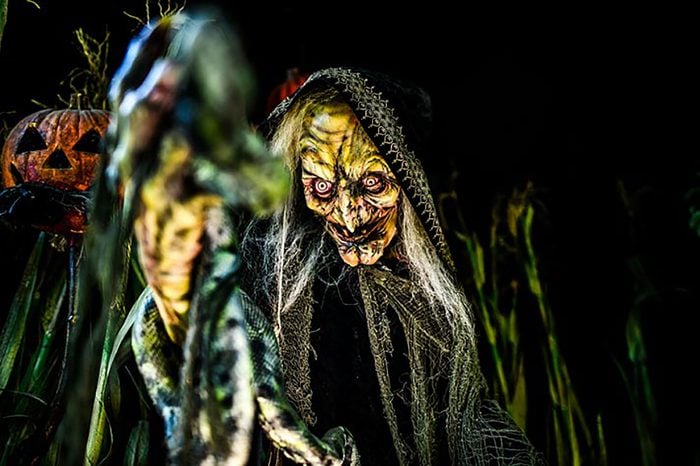
They can help you channel your energy
It may sound counterintuitive—since, well, part of being scared involves the element of surprise—but having a plan before getting scared can help you take advantage of that burst of energy, says Dr. Siegle. “In our haunted-house study, 90 percent of our participants loved the experience, and the 10 percent who didn’t did not have a strong intention for being there. And it can be different reasons, but I think there’s utility to deciding what you want out of it: Is it to raise your general arousal because you’ve been feeling down? Is it to get closer to your date? Are you trying to access some deeper emotions?” he adds.
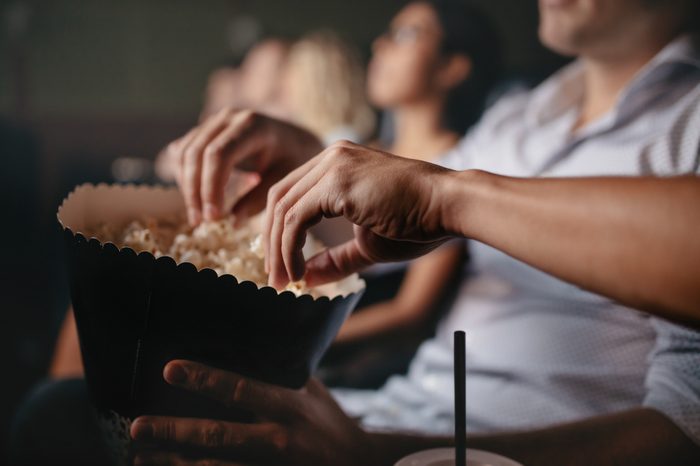
They can help soothe anxiety
You may think that those who have PTSD, anxiety disorders and social phobia would be advised against watching too many scary flicks, but the opposite may be true, says Dr. Siegle. “We’ve found that scary movies can help people reclaim those feelings of fear while knowing they’re in a safe environment on their own terms, to start to let those feelings in, and there can definitely be some value in that.” But if a scare stresses you out, check out these 10-minute anxiety-relievers.

